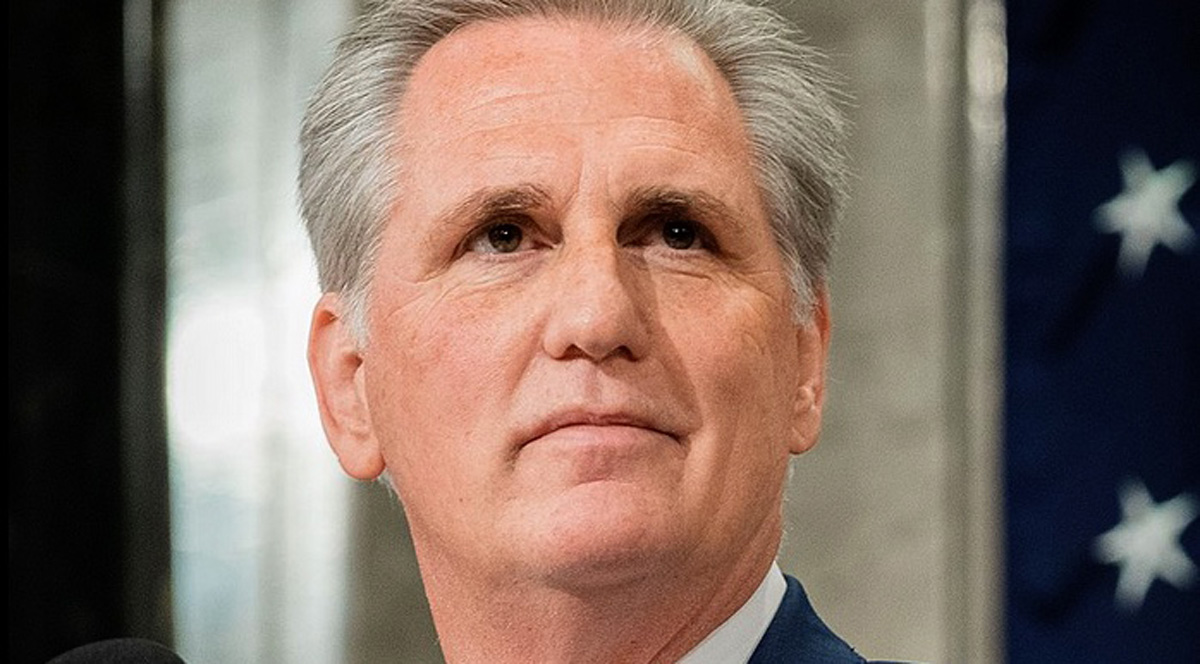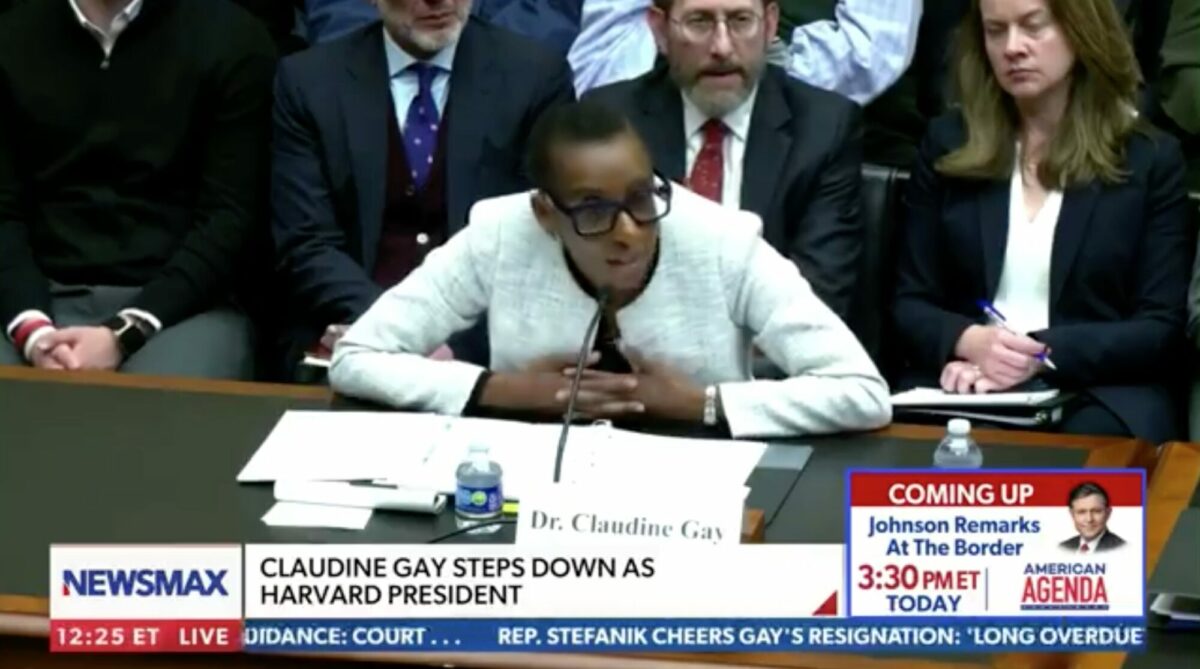By Robert Romano,
Eight House Republicans led by U.S. Rep. Matt Gaetz (R-Fla.) joined 208 House Democrats in deposing former House Speaker Kevin McCarthy (R-Calif.) on Oct. 3 via the rarely used motion to vacate the chair, effectively resetting the U.S. House of Representatives, which cannot function without a Speaker.
Much like parliamentary systems throughout the West, the motion to vacate is similar to a vote of no confidence, which, depending on the outcome, would result in new elections. However, in the U.S., the only election will be to elect a new Speaker, a sometimes chaotic process that will determine what direction the House now goes in next.
McCarthy, for his part, immediately withdrew his name from consideration for Speaker, speaking with reporters after the vote, as he stepped aside, saying he did not have 218 votes. Now, presumably, House Republicans in the conference will have to select a new Speaker candidate, and back to the floor they will go to vote.
The motion came after a failed attempt to pass a 30-day continuing resolution with H.R. 2 border security legislation and implementation of budget sequestration from the debt ceiling deal included, a bill by U.S. Rep. Byron Donalds (R-Fla.), that did not draw enough support from House conservatives, failing by a vote of 232 to 198 on Sept. 29, with 21 House Republicans voting no.
The legislation would have reduced discretionary spending by 8.13 percent — a $129 billion reduction — for Fiscal Year 2024, which began Oct. 1 and completed construction of 900 miles of border wall begun by former President Donald Trump before 2021, up from 700 miles under current law and waiving regulatory barriers to construction, expanded the Border Patrol to 22,000, implemented Operation Stonegarden to give $100 million of grants to local law enforcement to coordinate with the Border Patrol, prohibited the entry of aliens arriving in between ports of entry, provided access to the Border Patrol of the criminal history databases of all countries of origin and transit for aliens, added more exclusions to the asylum process, limits asylum seeking to ports of entry, among other provisions.
The conservative opposition to the spending bills is nothing new, including continuing resolutions, something that often vexes House Republican leaders. Some of the appropriations bills offered by House Republicans earlier had suffered a similar fate. What was atypical of the Donalds legislation was all of the policy riders and spending cuts it included. The policy riders are usually reserved for appropriations and omnibus spending bills.
If it had passed, of course, the Senate would have never agreed to it. The government might be shut down right now, pending a negotiation over what to include, giving House Republicans an opportunity to make the case for border security and holding the line on sequestration to the American people. And if they had held the line, likely to be included in the year-end omnibus bill or if some number of the 12 appropriations bills were completed.
But to get there, the House needed to be united by the Donalds legislation.
Instead, with no legislation to negotiate with the Senate with, McCarthy opted to move a 45-day “clean” continuing resolution forward, which unsurprisingly, easily passed with bipartisan support, sparking the motion to vacate by Gaetz, made possible with just one member under the House rules that were adopted in exchange for McCarthy becoming Speaker in the first place. It was a Sword of Damocles that ultimately fell upon McCarthy.
Also up in the air now is the impeachment inquiry of President Joe Biden that was ordered by former Speaker McCarthy. There might not be an impeachment inquiry depending on who the next Speaker is.
Democrats were understandably quick to embrace Gaetz’s motion to vacate McCarthy. Why not? It creates an opportunity for them to cobble together a coalition government with Republicans—they only need five—that would effectively overturn the results of the 2022 election and disenfranchise 54.5 million Americans who voted for a Republican majority in the House.
Although perhaps an unlikely outcome, it’s more likely now than it was a week ago. It’s a risk that Gaetz and seven other House Republicans have assumed.
History is judged by outcomes.
Suppose the House winds up with a more conservative Speaker who can still deliver the Biden impeachment inquiry, border security provisions in the year-end spending bill(s), and hold the line on sequestration. Gaetz might be vindicated in that case, even if the outcome might not have been much different than if McCarthy had still been Speaker.
On the other hand, if Democrats wind up in control of the House or if a more liberal Republican becomes Speaker — meaning no shutdown, no fight over border security, no impeachment, and perhaps no budget sequestration — Gaetz will be blamed.
The question is one of leadership within the House Republican conference: whether there is any member who can unite the factions in the House GOP, particularly with the one-member motion to vacate Sword of Damocles being restrung by a single strand of hair of a horse’s tail over the head of the next Speaker.
Cross-Posted with Conservative Firing Line



